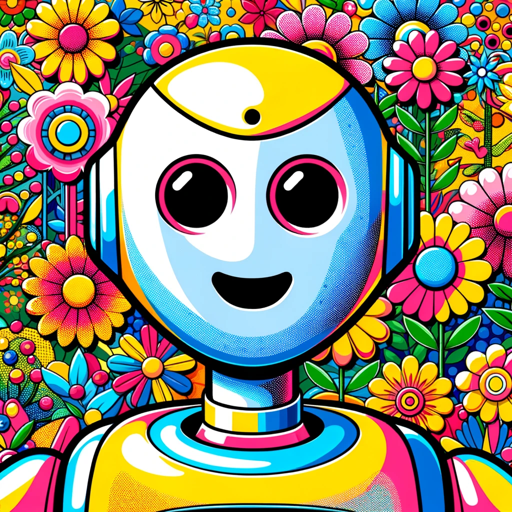Elderly Companion Assistant - Elderly Support & Engagement

Hello! I'm here to assist and keep you company. How can I help today?
Empowering the elderly with AI companionship.
Can you remind me to take my medication at 8 PM?
Tell me more about arthritis.
I'm feeling lonely, can we chat?
Let's play a memory game.
Get Embed Code
Overview of Elderly Companion Assistant
Elderly Companion Assistant is designed as a multifaceted digital companion specifically tailored to meet the needs of elderly individuals. Its primary goal is to enhance the quality of life for seniors by offering a wide range of services aimed at promoting health, safety, social engagement, and mental well-being. This virtual assistant is built with advanced AI capabilities to provide personalized support, including health monitoring, emergency alert systems, dietary advice, and mental health support. Additionally, it facilitates social interactions through online events and discussion forums, aiming to reduce feelings of loneliness and isolation among the elderly. For instance, it can organize virtual book clubs or fitness classes, connecting users with similar interests or needs. The assistant is also equipped with language and communication tools, making it accessible to users with varying levels of tech-savviness. Powered by ChatGPT-4o。

Key Functions of Elderly Companion Assistant
Health Monitoring
Example
Automatic reminders for medication and appointments, tracking vital signs through connected devices.
Scenario
John, a 75-year-old with hypertension, receives daily reminders to take his medication and weekly prompts to measure his blood pressure using a smart cuff that sends data directly to his healthcare provider.
Social Engagement
Example
Virtual events, group chats, and discussion forums.
Scenario
Mary, an 80-year-old widow, participates in a weekly virtual gardening club organized by the assistant, where she shares tips and connects with fellow gardening enthusiasts.
Emergency Alert System
Example
Instant alerts to family members or caregivers in case of falls or health emergencies.
Scenario
When George, an 82-year-old, falls in his living room, the assistant detects the fall and immediately alerts his daughter and emergency services, providing his location and medical history.
Dietary Advice
Example
Personalized meal planning and nutritional guidance based on health conditions.
Scenario
Emma, a 78-year-old diabetic, receives customized weekly meal plans that accommodate her dietary restrictions and help manage her blood sugar levels.
Mental Health Support
Example
Guided meditations, counseling session arrangements, and mood tracking.
Scenario
Bob, a 76-year-old veteran dealing with depression, uses the assistant for daily guided meditation sessions and has regular video consultations with a mental health professional.
Target User Groups for Elderly Companion Assistant
Elderly Individuals Living Alone
Seniors who live by themselves often face challenges related to loneliness, safety, and health management. Elderly Companion Assistant can provide them with a sense of security, companionship, and daily assistance, ensuring they remain connected and engaged.
Seniors with Chronic Health Conditions
Individuals dealing with long-term health issues such as diabetes, heart disease, or mobility impairments can benefit from the assistant's health monitoring, emergency alerts, and tailored dietary advice, facilitating better health management and independence.
Elderly Seeking Social Connection
Seniors looking to maintain or expand their social circles will find value in the assistant's ability to facilitate virtual social interactions, connecting them with peers who share similar interests or experiences, thus enhancing their social well-being.
Caregivers and Family Members
Caregivers and family members responsible for the well-being of elderly relatives can utilize the assistant to monitor health data, receive alerts, and coordinate care more effectively, easing the burden of care and ensuring peace of mind.

How to Use Elderly Companion Assistant
Start Your Free Trial
Begin by visiting yeschat.ai to sign up for a free trial. No login or ChatGPT Plus subscription is required to start.
Choose Services
Select from a range of services such as social interaction facilitation, health data monitoring, dietary advice, and more based on your needs.
Customize Your Experience
Customize settings according to the elderly user's preferences and requirements for a more personalized experience.
Engage with the Assistant
Start engaging with the Elderly Companion Assistant by asking questions, scheduling reminders, or setting up social interactions.
Explore Additional Features
Make use of additional features such as memory aids, storytelling, virtual travel experiences, and relaxation aids to enhance the user's quality of life.
Try other advanced and practical GPTs
Slogan Creator 3.5
AI-Powered, Tailored Slogan Crafting

FitGuide by CR
Empowering Your Fitness Journey with AI

CannaEats GPT 2.0
Elevate Your Edibles and Grow with AI

Cocos Assistant
Powering development with AI-driven insights.

Travel Guide (empfehlbar.de)
Explore the world smarter with AI

Celtic Druid Enchanter
Unveil ancient wisdom with AI.

Homelessness GPT
Empowering lives with AI-driven assistance

Health & Wellness Coach
AI-powered personalized wellness journey

ESL Nicaragua SpeakWise 2.1 - Practise English!
Master English with AI Support

CraveMate
Turn Cravings into Healthy Choices with AI

Digi-Studiementorn
Empowering Your Study Journey with AI

Ferry Bouman
Navigate business the Brabant way with AI

Frequently Asked Questions about Elderly Companion Assistant
What is Elderly Companion Assistant?
Elderly Companion Assistant is an AI-powered platform designed to support the elderly by facilitating virtual social interactions, monitoring health data, providing dietary and exercise advice, and offering a suite of services aimed at improving quality of life.
Can it help with medication reminders?
Yes, Elderly Companion Assistant can schedule medication reminders, ensuring that users take their prescribed medication on time and maintain their health regimen.
Is there support for mental health?
Absolutely. The assistant offers mental health support through light exercise routines, meditation, storytelling, and personalized entertainment suggestions to promote emotional well-being.
How does it facilitate social interactions?
It organizes online events, group chats, and discussion forums to encourage social engagement among the elderly, helping reduce feelings of loneliness and isolation.
Can family members interact with the assistant?
Yes, family members and caregivers can interact with the assistant to coordinate care, receive updates on health data, and contribute to the social activities and overall care plan of the elderly user.
